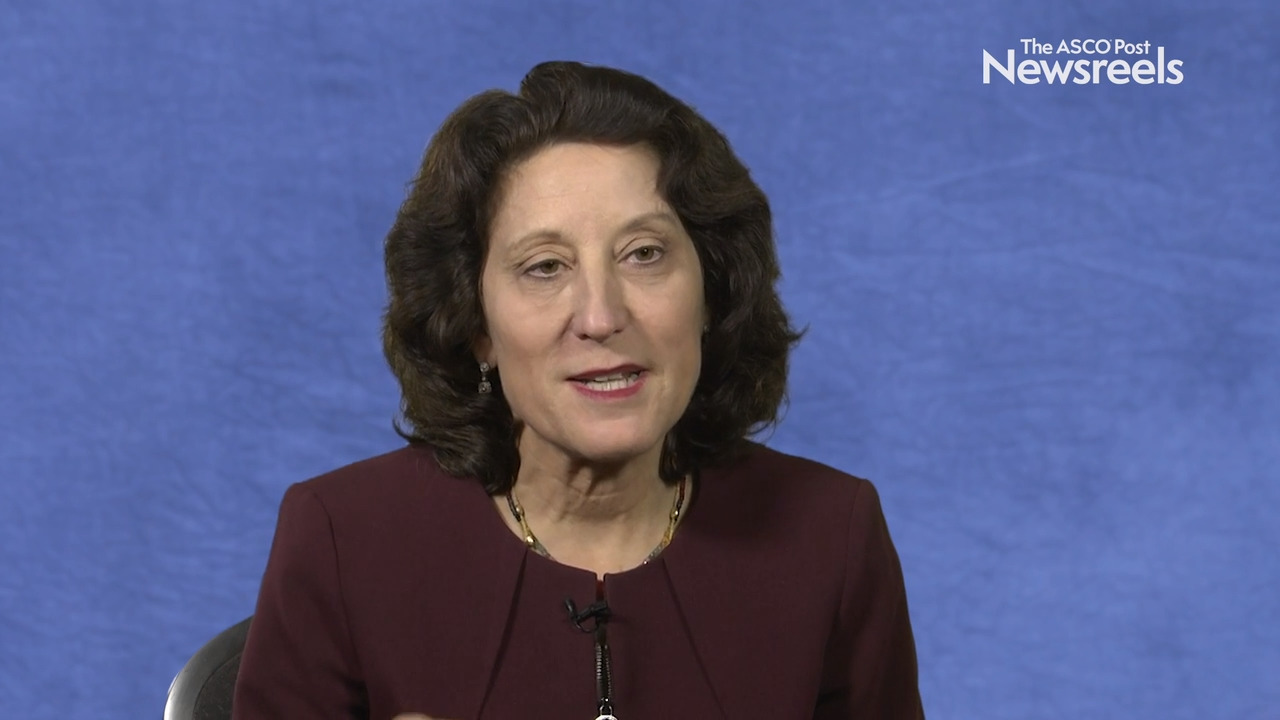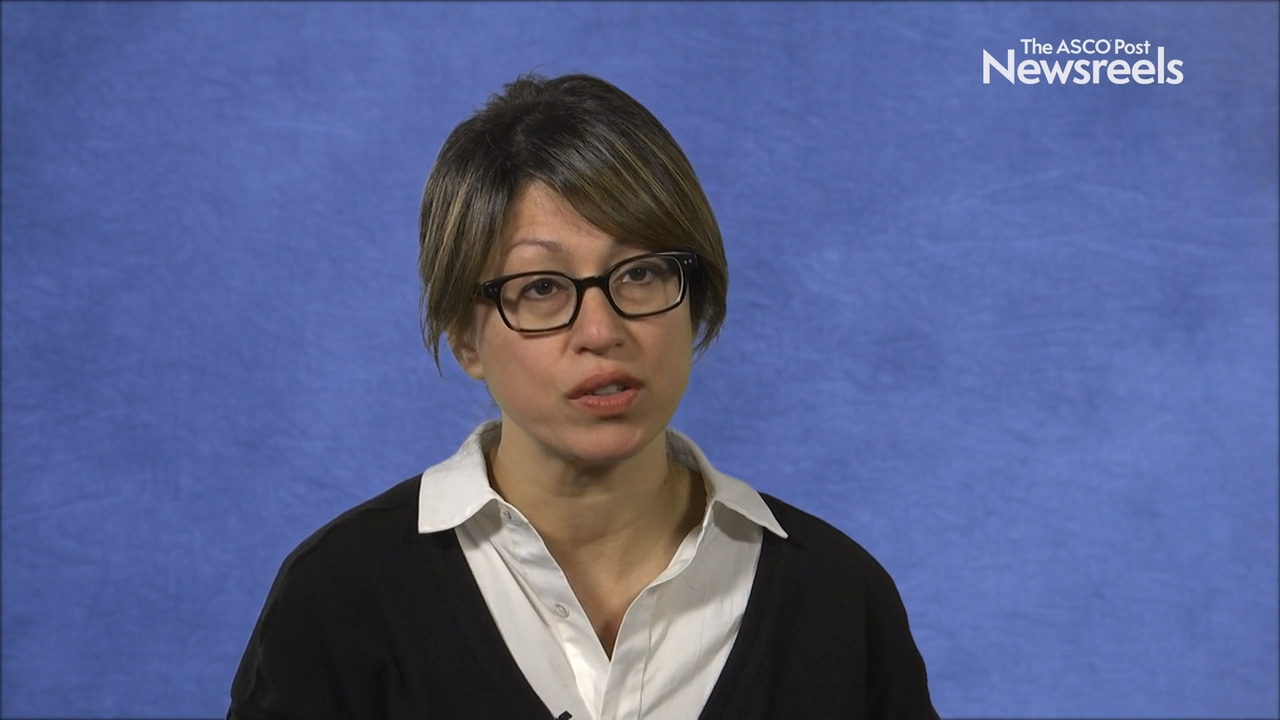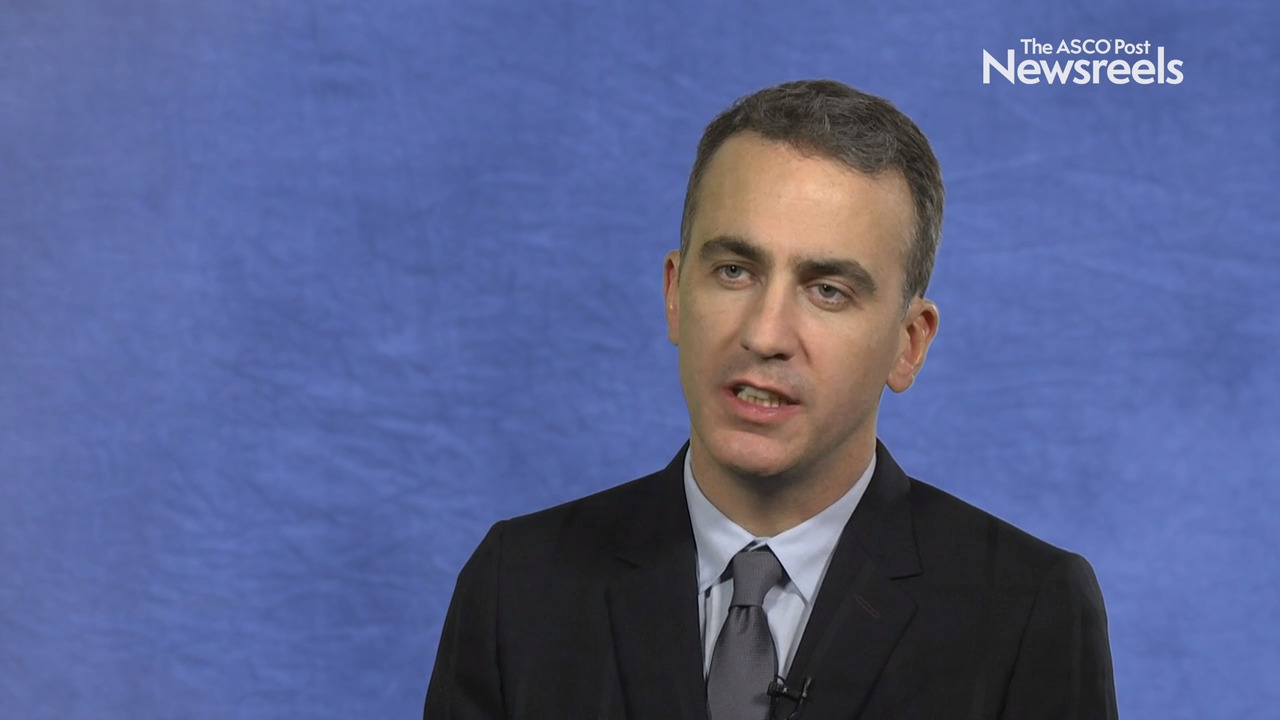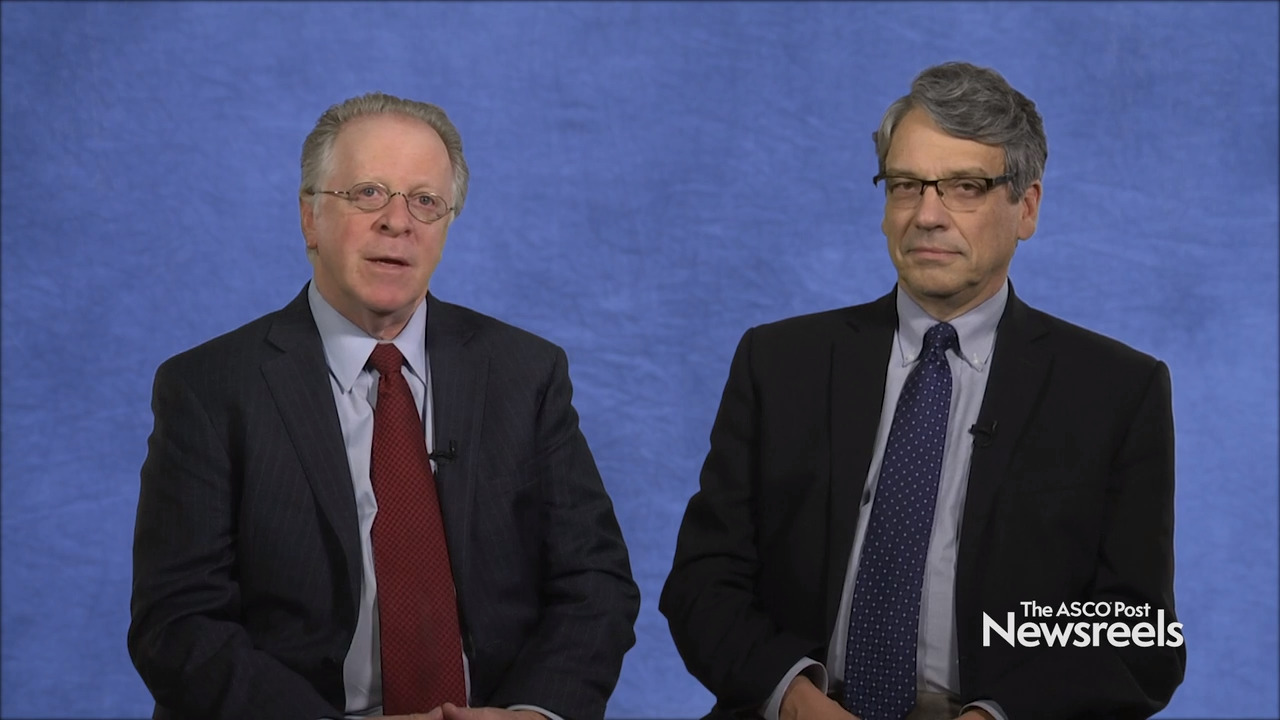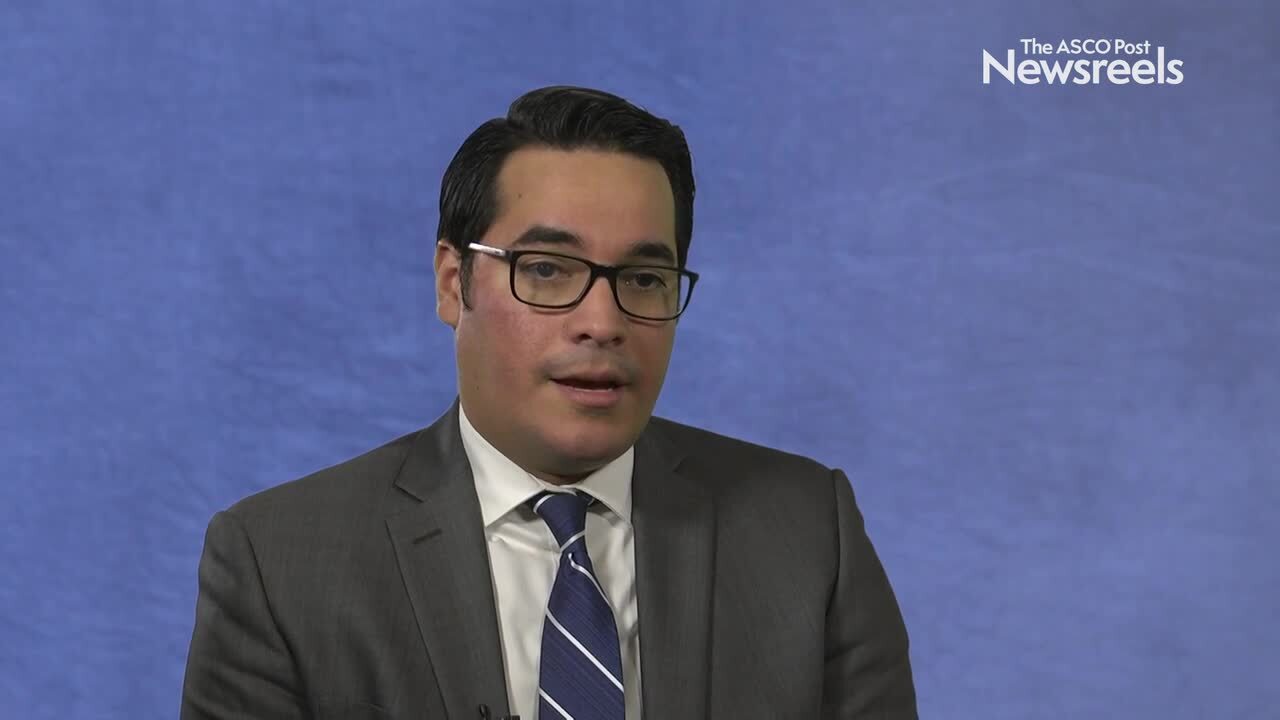Andrew D. Seidman, MD, and Miguel Martín, MD, PhD, on Triple-Negative Breast Cancer: Results From the CIBOMA/GEICAM Trial
2018 San Antonio Breast Cancer Symposium
Andrew D. Seidman, MD, of Memorial Sloan Kettering Cancer Center, and Miguel Martín, MD, PhD, of the Instituto de Investigacion Sanitaria Gregorio Marañón, discuss phase III study findings on adjuvant capecitabine after standard chemotherapy for people with early triple-negative breast cancer (Abstract GS2-04).
Hope S. Rugo, MD, of the University of California, San Francisco, discusses how treatment with a lower dose of palbociclib (100 mg vs 125 mg) in combination with fulvestrant or tamoxifen is associated with a lower rate of high-grade neutropenia (Abstract PD2-12).
Shanu Modi, MD, of Memorial Sloan Kettering Cancer Center, discusses study findings from a large phase I study on trastuzumab deruxtecan in patients with low HER2-expressing breast cancer (Abstract P6-17-02).
François-Clément Bidard, MD, PhD, of the Institut Curie and the University of Versailles, discusses phase III study findings on the clinical utility of circulating tumor cell count as a tool to choose between first-line hormone therapy and chemotherapy for estrogen receptor–positive, HER2-negative metastatic breast cancer (Abstract GS3-07).
Andrew D. Seidman, MD, of Memorial Sloan Kettering Cancer Center, and Charles E. Geyer, MD, of Virginia Commonwealth University, discuss phase III study findings on ado-trastuzumab emtansine vs trastuzumab as adjuvant therapy in patients with early HER2-positive breast cancer with residual invasive disease after neoadjuvant chemotherapy and HER2-targeted treatment (Abstract GS1-10).
Roberto A. Leon-Ferre, MD, of the Mayo Clinic, discusses study findings on the effectiveness of oxybutynin in decreasing the frequency and severity of hot flashes (Abstract GS6-01).
